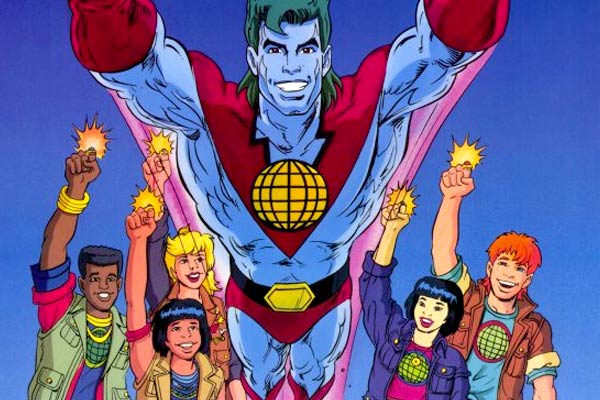A new US study shows: Superman, Spiderman, and Co. make kindergarten children aggressive. Above all, in boys, the aggression – physically and socially – increased significantly. As models for the vulnerable weaker, the superheroes did not leave an impression on both boys and girls.
German experts confirmed the results of the US researchers
Washington. Superman, Spiderman, or Captain America, are spinning through the TV program of numerous preschool children. What is the effect on the three to six-year-olds? Do they become more aggressive? Or maybe the nursery children may also consider that superheroes often protect themselves against the weaker?
A new US study has now investigated this and shows: especially in boys, the aggression – physically and socially – increased significantly. As a role model for the vulnerable, the superheroes did not make an impression on both boys and girls, per Sarah Coyne and her team from Brigham Young University in Provo, Utah.
Parents provide unfavorable reinforcement
The researchers interviewed the parents of 240 nurses aged between three and six and a half years from different institutions at intervals of one year. They should provide information about which superheroes preferred their offspring, and how far they behaved aggressively against others with deeds or words.
Even the children should call their favorite superheroes and say what they find great about them. The range of responses ranged from: “Because he can shoot nets and save others” to “Because he can strike and destroy everything and does not care because he is a big bully.” Most of the children (70 percent) expressed themselves in the middle, well-being area like: “Because he is cool and can fly.”
The results showed that almost 84 percent of boys and 82 percent of girls had already seen TV series or films with super shelves. One in five boys and about one in every 20 girls watched this program every week. In both sexes – if the girls were also to a much lesser extent – the aggression increased during the year the more the kids were concerned with super children.
Violence is always legitimized in super children stories
There seems to be an unfavorable intensification of the effect because many parents clearly perceived the positive, social sides of the superheroes much more clearly than their children. They were still too young to understand the complex, double structures of violence and protection without the help of older, Coyne explained.
This is confirmed by German experts. “The results are not surprising because violence is always legitimized in super children stories”, says the social psychologist Robert Busching, who is dealing with media violence at the University of Potsdam. The study has confirmed several similar long-term studies from the past few years – although it is the first to be super children.
It is also not unusual for girls to be less concerned about super shelves – also because there are fewer superhero figures. This is also observed by the Munich media pedagogue Michael Gurt. And Already in the preschool age, some of the boys turn to” strong fighters “, such as Star Wars or Ninja go, while girls are more important for stories about small lenders and everyday adventures.”
Situation in Germany less drastically
It is easy to understand that preschool children have difficulties in bringing together violence and defensive behavior in super children stories. “What messages are arriving at the children, how they judge violent stories or heroic figures, and what aspects are important to them is dependent on the social environment.” It is important that parents and other reference persons help with classifying.
Guru, however, believes that the situation in Germany is less drastic. “In the everyday life of preschool children, super shelves in Germany are certainly not anchored in the same way as in the USA.” In Germany, much more formats such as “Kikaninchen” and “Leo Lausemaus” dominated.
Children need identification figures that are close to their heart, offering them the feeling of familiarity and reliability, “says Gurt. Superhelden, whether in cartoon series or in the film, belonged not to it.








